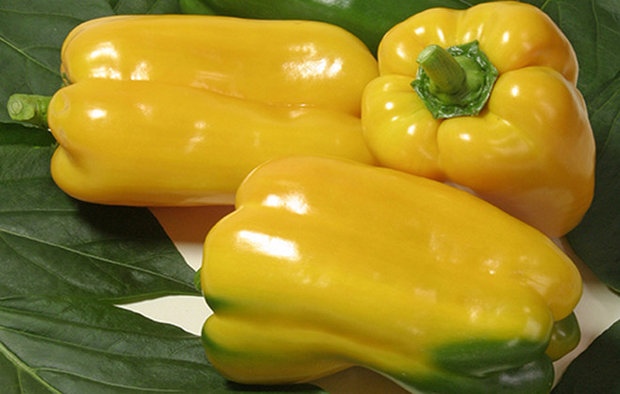 Hybrid varieties are appreciated by both experienced agronomists and summer residents, and this is not surprising, because they are often immune to common diseases and more unpretentious to weather conditions than ordinary varieties.
Hybrid varieties are appreciated by both experienced agronomists and summer residents, and this is not surprising, because they are often immune to common diseases and more unpretentious to weather conditions than ordinary varieties.
One of the popular hybrids is Gemini, its fruits are very attractive in appearance and have excellent taste, and maybe this is the secret of its popularity?
Content
Grade description
Bushes are medium tall in height reach 60 centimeters. The stalk is quite powerful, upright. The leaves are wrinkled, dark green in color, there are a lot of them, which protects the plant from direct sunlight.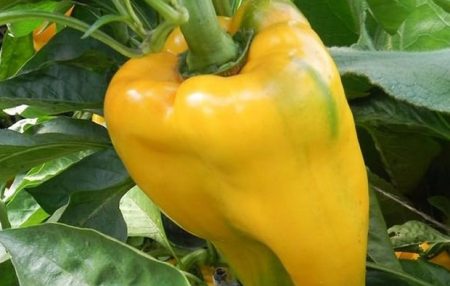
Fruits of a cuboid shape, at the stage of technical maturity, have a green color, ripe peppers of bright yellow color. The fruits are quite large, their weight can vary from 200 to 300 grams and greatly depends on the place of planting. The peel is thin, the pulp is fleshy, juicy tastes sweet and has bitterness. The fruits have four chambers, the wall thickness of about 8 mm. Peppers reach a length of approximately 18 cm. From one bush, from 7 to 10 ovaries are formed.
Ripe peppers without effort are separated from the stem. For preservation, fruits are harvested at the stage of technical maturity; for ripe fresh, fully ripened vegetables are better. From the Gemini variety you will get a delicious adjika or lecho, you can also close it for the winter with slices in brine. To be frozen, without losing its taste.
"Gemini" refers to early ripening varieties, from the moment of the appearance of the first seedlings to the stage of technical maturity only 75-85 days pass. Undemanding to weather conditions, it is grown even in regions where a cool and fairly short summer. It is famous for its excellent productivity, from one hectare you can get about 350 centners of flavor pepper.
Like any vegetable, “Jemeni” has its pros and cons.
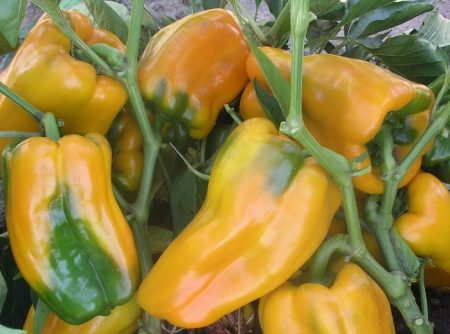
Benefits
- Excellent presentation.
- Early ripening.
- All fruits ripen at the same time.
- Great taste.
- High yield.
- Resistance to weather conditions.
- Natural immunity.
disadvantages
- Slow coloring of pepper.
- The dependence of the crop on fertilizers.
- The need for garter.
Gemeni has an excellent presentation and for a long time retains excellent taste and aroma, so it is great for growing for sale. The variety also has excellent immunity to common viral diseases, including the potato virus.
Growing
Seedlings
Growing it will not be difficult for any gardener, but you should know that seeds need to be bought in stores every year, collected from last year’s harvest will not work. In regions where a warm climate prevails, seeds can be sown already in February, where the climate is more severe, planting should be postponed until March.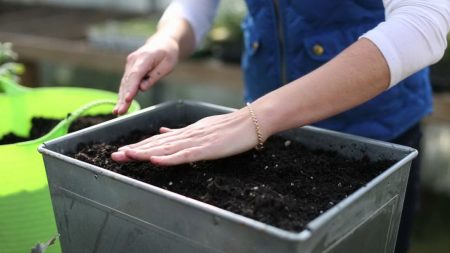
It is better to sow seeds immediately in separate containers to avoid picking in the future, because, as you know, pepper does not tolerate this procedure and is delayed in development. "Gemini" photophilous and thermophilic plant. The first two weeks after planting, the temperature in the room where it is located should be 24-27 degrees, during which time the first sprouts will appear, then it can be moved to a cooler but brighter place. Daylight hours for not mature seedlings should be at least 12 hours.
For 40-50 days it can already be planted in a permanent place, but the earth at this point should warm up to 16 degrees.Seedlings are planted in the greenhouse in mid-May, in open ground in early June. At the time of transplantation, the height of the plant should be 16-17 cm, 5-6 real leaves, respectively, should be located on the bushes, flower ovaries are allowed.
Planting in the soil
First you need to choose a site. It should be located on a flat surface or on a small elevation, a place where beans, cabbage or grains previously grew was suitable. Pepper prefers loose, carbonate soils. Wells are placed at a distance of 35-45 cm, before transferring seedlings, organic or mineral fertilizers are introduced into them. After the seedlings have been transplanted, watering is mandatory. It is recommended to mulch the soil, which is located around the root neck, this helps protect the root system from overheating and hypothermia, and also helps to retain moisture.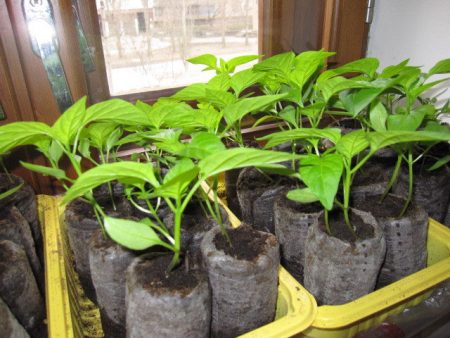
"Gemini" needs to be stepson, usually a plant is formed into one stem. The first bud needs to be cut. When growing pepper in a greenhouse, it needs a garter, this is explained by the large weight of the fruits, because the stem may simply not be able to support their weight. In open ground, a garter is not necessary, since the fruits have less weight.
Fertilizer
Top dressing is applied three times for the entire growing season: the first time 7 days after a dive, or a month after planting, the second during flowering, and the third time when the ovaries begin to form. Pepper needs potash and phosphorus fertilizers, it does not need nitrogen. It is also important to consider that the plant does not tolerate chlorine, and when using mineral fertilizing, you need to carefully monitor that it is not present in the composition.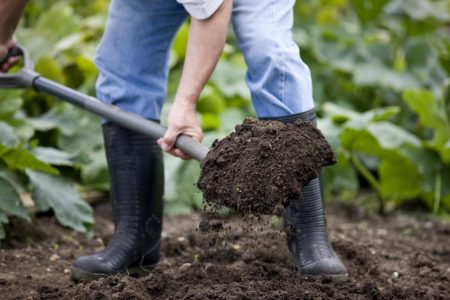
Cleaning and storage
Harvesting is possible both at the stage of technical maturity, which begins already in July, and when fully ripened, for this you need to wait for a one-color stain of pepper. The optimum temperature for storing the crop is from 7 to 12 degrees, while the room should be well ventilated.
Reviews
Eugene 50 years Novokuznetsk
We have been growing “Gemini” in a heated greenhouse for sale for several years. Its price is much higher than that of ordinary pepper. And the yield is excellent, of course, this variety must be carefully looked after, but we are already used to it. Not only do we make money, we close it for ourselves in the winter and eat salads.
Alena 29 years old Village Kushchevskaya
In that year, I bought unknown seeds of Jameny pepper for testing. I would know that such a crop would be, I would buy more. Now, mentally thank the saleswoman who advised him to me. To begin with, I grew in a greenhouse, fed, tied, regularly watered. The fruits grew large, tasty, they ate with the whole family, they closed for the winter, they also treated the neighbors, everyone was delighted with this variety!
Conclusion
Of course, "Gemini" is quite picky about leaving, but most farmers have come to terms with this. And they continue to carefully look after him, in gratitude for this, “Jameny” rewards them with its juicy and tasty fruits.

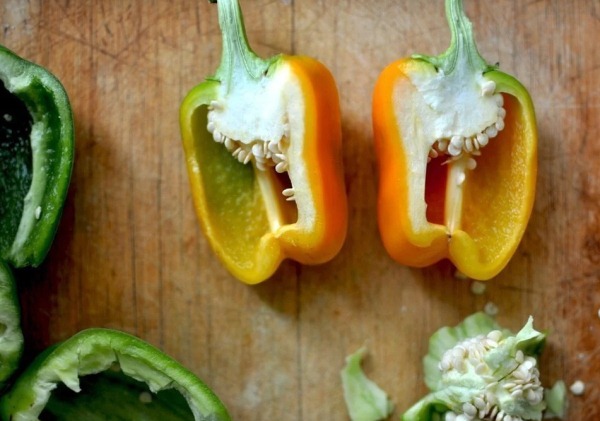
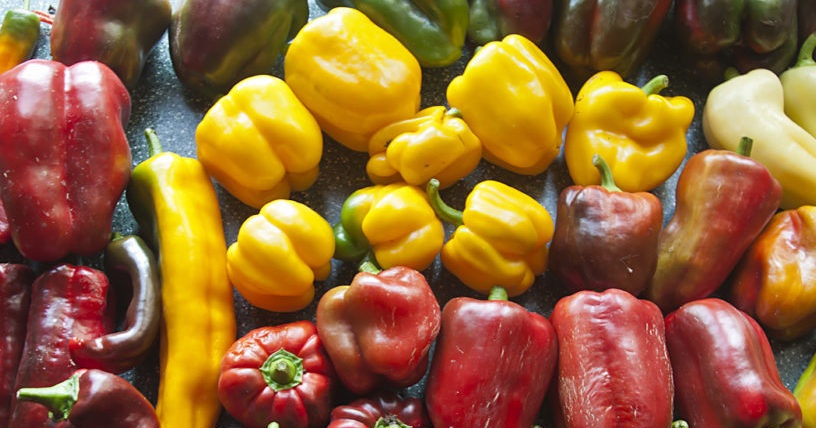
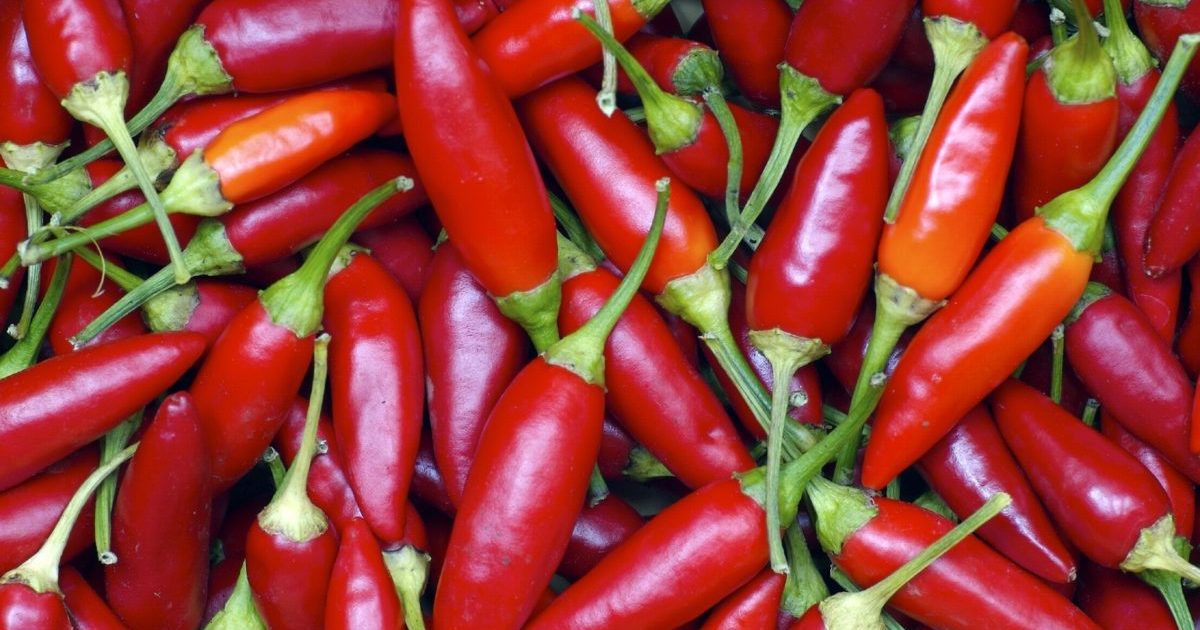
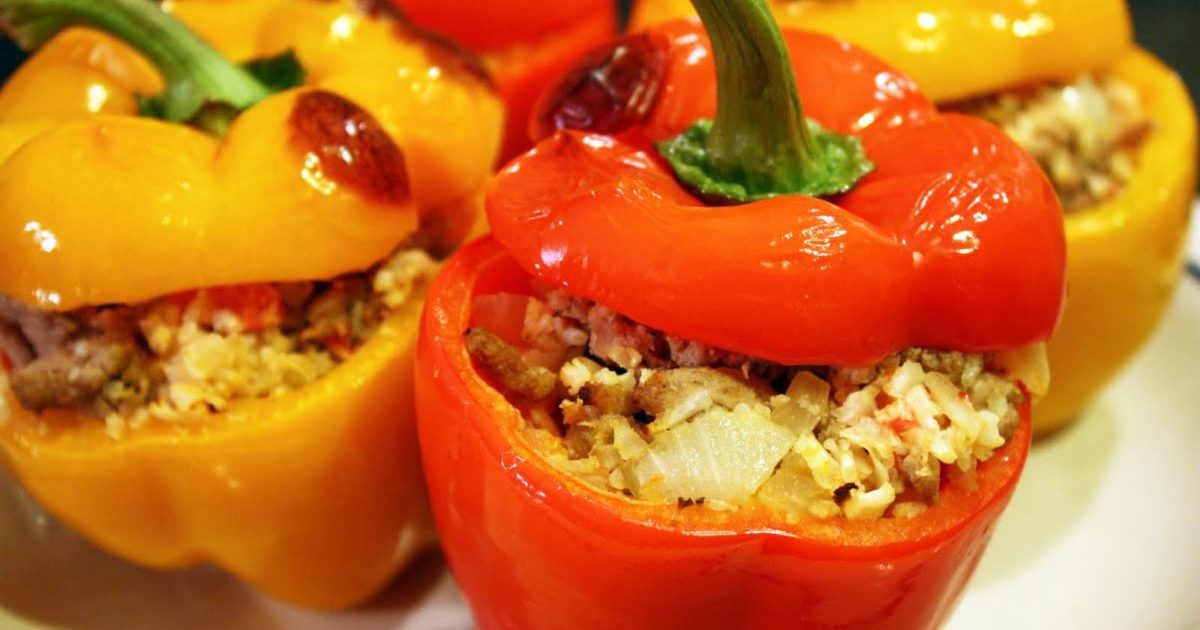 Calorie pepper stuffed with meat and rice - BZHU per 100 grams
Calorie pepper stuffed with meat and rice - BZHU per 100 grams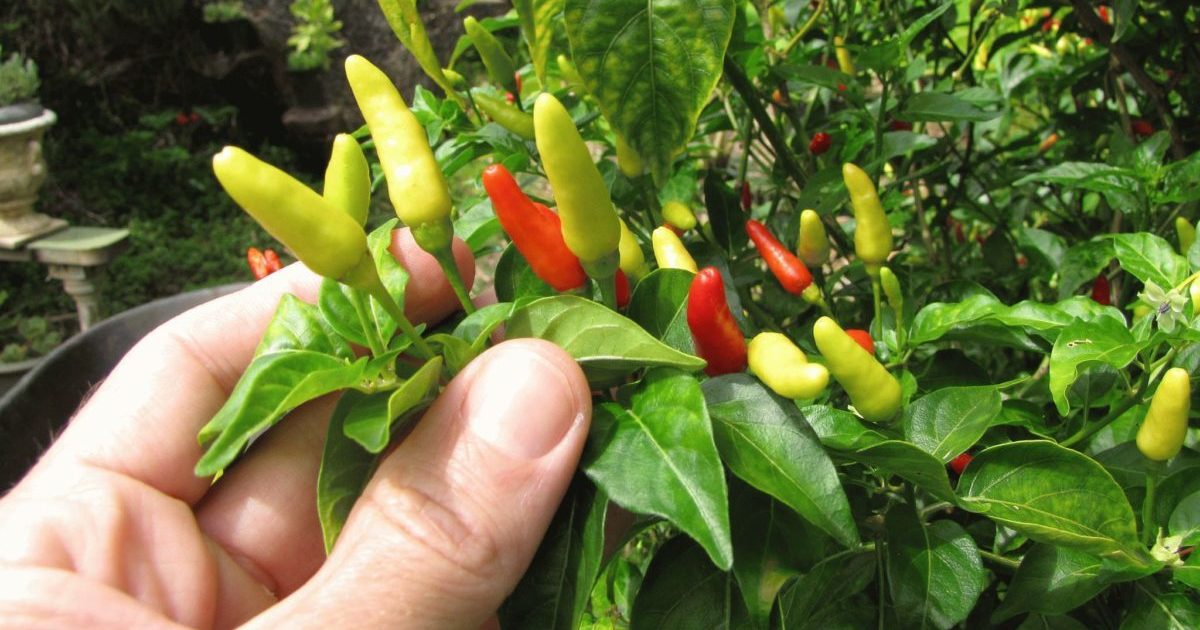 Gorky pepper - the best varieties for open ground
Gorky pepper - the best varieties for open ground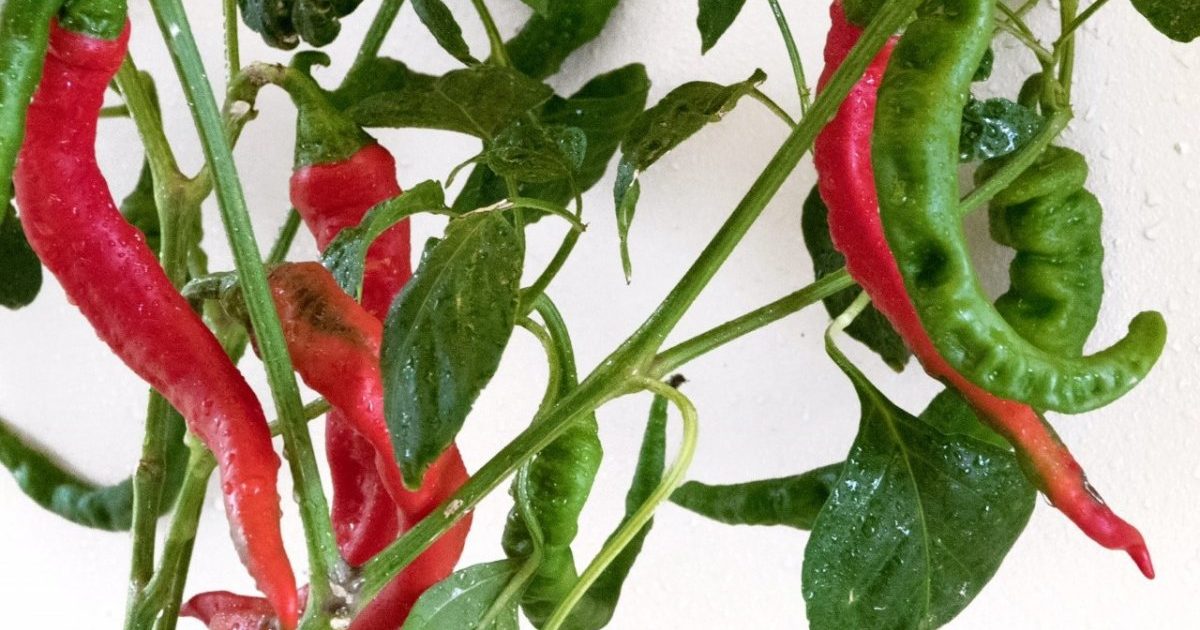 Hot pepper seeds - the best varieties for open ground and reviews
Hot pepper seeds - the best varieties for open ground and reviews Capsicum tincture for hair - how to use and reviews
Capsicum tincture for hair - how to use and reviews